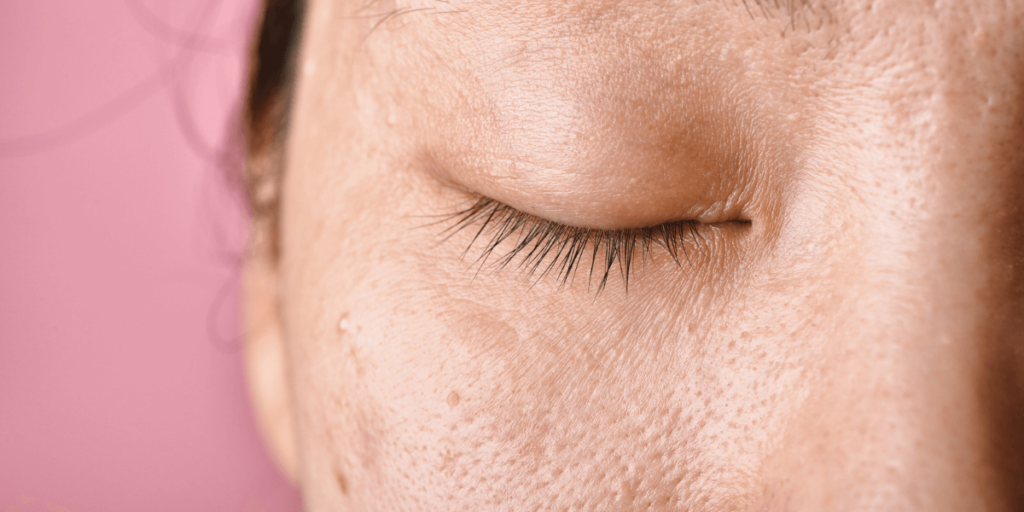Understanding What Causes Dark Spots and Scars
Dark spots and scars are common skin concerns that many individuals seek to address, often for cosmetic reasons or to boost their confidence. Understanding the root causes of these skin issues is vital to effectively treating them and preventing future occurrences. Various factors, such as sun exposure, hormonal imbalances, acne, injuries, or surgeries, can lead to the development of dark spots and scars.
Sun exposure is one of the primary enemies of clear skin. Ultraviolet (UV) light triggers melanin production, leading to hyperpigmentation or dark spots, particularly in individuals with fair skin. Hormonal changes, commonly occurring during pregnancy or due to birth control pills, can also cause melasma or “pregnancy mask,” characterized by dark patches on the face.
In addition, acne can leave behind scars and marks that become more pronounced over time. It is essential to remember that scars are the result of the body’s attempt to heal wounds by forming new tissue, which might not match the original skin in texture or color. Understanding these causes provides insight into selecting the right treatment path among various natural remedies.
Identifying Different Types of Skin Scars and Discoloration
Before diving into treatment solutions, identifying the type of skin concern you are dealing with is crucial. Different types of scars and discolorations need specific approaches for effective management.
- Atrophic Scars: These are indented scars often caused by severe acne or chickenpox. They occur when the healing process leaves depressed areas due to insufficient collagen production.
- Hypertrophic and Keloid Scars: Both are raised scars, but keloids are more severe as they extend beyond the initial wound boundary. These occur due to an overproduction of collagen during the healing process.
- Post-Inflammatory Hyperpigmentation (PIH): Dark spots develop after an injury or inflammation, like acne, as the skin increases melanin production to protect itself.
- Melasma: This is a condition where large patches of discoloration appear on the skin, often triggered by hormonal changes and sun exposure.
Each scar and discoloration type requires a personalized approach, which could range from natural topical treatments to professional interventions.
The Importance of Natural Ingredients in Skin Care
Natural ingredients have become a staple in skincare routines for many due to their minimal side effects and accessibility. These ingredients can be gentle yet effective in treating skin concerns like dark spots and scars, making them a favorable alternative to chemical-laden products.
Using natural remedies aligns with a holistic approach to health and wellness, focusing on body-friendly options that nourish and heal from the inside out. Many natural ingredients boast antibacterial, anti-inflammatory, and antioxidant properties that can assist in skin repair and regeneration.
Moreover, such ingredients are not only cost-effective but also environment-friendly. With increasing awareness of sustainability, opting for natural remedies encourages a green lifestyle. Embracing these ingredients for skincare means advocating for healthier skin and a healthier planet.
Common Household Items for Treating Dark Spots
Treating dark spots doesn’t always require expensive creams or procedures. Some of the most effective remedies can be found in your kitchen. Here’s a look at some common household items that can help reduce dark spots naturally:
- Baking Soda: Known for its exfoliant properties, baking soda can help in removing dead skin cells and lightening dark spots. It’s essential to mix it with water to form a paste before application.
- Potato Juice: Potatoes contain enzymes that can lighten and brighten the skin. Applying potato juice regularly can gradually reduce spots and skin discoloration.
- Oatmeal: An excellent natural exfoliant, oatmeal can also help reduce inflammation and soothe the skin. Mixing it with milk or honey enhances its rejuvenating effects.
The regular use of these household items can make a noticeable difference in your skin’s appearance, thanks to their naturally occurring beneficial compounds.
The Role of Aloe Vera in Skin Healing
Aloe vera is renowned for its therapeutic properties, especially in skin healing. This succulent plant’s gel is packed with vitamins, minerals, and enzymes that work wonders for the skin.
Aloe vera’s soothing and moisturizing properties make it particularly effective in accelerating the healing process of scars. It can stimulate fibroblasts, the skin cells responsible for healing wounds and producing collagen, which results in smoother skin.
Additionally, aloe vera contains compounds like polysaccharides that help promote skin repair, reduce inflammation, and prevent further skin damage. Regular application of aloe vera gel can not only fade dark spots and scars over time but also improve the skin’s overall health and texture.
Benefits of Lemon Juice for Lightening Scars
Lemon juice is a well-known natural remedy for lightening scars and dark spots due to its high citric acid content, a natural bleaching agent. Here’s how lemon juice can benefit skin healing:
- Exfoliation: The natural acid helps in exfoliating dead skin cells, promoting the regeneration of new cells, and revealing brighter skin.
- Antioxidant Properties: The presence of vitamin C boosts the skin’s ability to repair and protect itself, enhancing collagen synthesis which is crucial for scar healing.
- Astringent Effects: Lemon juice can help minimize pore size, control excess oil, and reduce redness and swelling.
Although lemon juice is potent, it should be used cautiously. Always perform a patch test before broader application and dilute it with water or honey to prevent skin irritation.
Harnessing the Power of Apple Cider Vinegar
Apple cider vinegar (ACV) is a versatile ingredient known for its skin-brightening and exfoliating properties. It contains acetic acid, which can lighten pigmentation and promote healthy skin turnover.
The natural acids in ACV gently exfoliate and remove dead skin cells, unveiling a more even skin tone. Regular use can significantly reduce the appearance of dark spots, as well as prevent new ones from forming.
When using ACV for skin treatment, it’s essential to dilute it with water to avoid irritation. A simple mixture can be created using one part ACV and two parts water, applied to the skin with a cotton ball.
Using Honey for Scar and Spot Treatment
Honey is nature’s miracle worker, offering multiple benefits for skin treatment. It’s not only hydrating but also packed with antioxidants and antibacterial properties that can improve skin conditions.
Honey helps to keep the skin moist, promoting healing and fading of scars over time. Its antibacterial properties make it an excellent choice for treating acne-related scars by preventing further breakouts and infections.
Moreover, applying honey stimulates the regeneration of skin cells, thanks to its enzymes and amino acids. This soothing and healing ingredient is an excellent addition to any natural skincare regimen for reducing dark spots and scars.
Herbal Treatments: Turmeric, Sandalwood, and Essential Oils
Harnessing the power of herbs and essential oils can significantly enhance the treatment of dark spots and scars. These natural ingredients are rich in healing properties and have been used for centuries in traditional medicine.
- Turmeric: Known for its anti-inflammatory and antioxidant properties, turmeric can lighten dark spots and scars when applied as a paste mixed with honey or yogurt.
- Sandalwood: This fragrant wood is often used in skincare for its soothing and cooling effects. It can help reduce dark spots when applied as a paste with rose water.
- Essential Oils: Lavender, tea tree, and rosehip oils are especially good for scar healing due to their regenerative and antibacterial properties. They can be used as part of a daily moisturizer or applied directly to scars.
Using herbal treatments requires a consistent approach. These natural remedies, combined with other treatments, contribute to healthier skin.
Safety Tips for Using Natural Remedies on Your Skin
While natural remedies offer a safe alternative to chemical treatments, it’s crucial to use them wisely to avoid any adverse skin reactions. Here are some safety tips to consider:
- Patch Test: Always test a small amount of the remedy on your inner arm or behind your ear before applying it to the affected area.
- Dilution: Strong ingredients like lemon juice or ACV should be diluted to prevent skin irritation or burns.
- Sun Protection: Many remedies, especially those involving citrus, can make your skin more sensitive to the sun. Always apply sunscreen after using them.
- Allergy Awareness: Be aware of any allergies you might have to specific ingredients, and consult with a healthcare professional if necessary.
Being mindful of these tips ensures that natural remedies can be enjoyed safely and effectively.
When to Seek Professional Help for Skin Discoloration
While home remedies can be effective for many, some skin issues might require professional intervention. It is important to know when to seek help from a dermatologist or skincare professional.
If your scars or dark spots do not improve with at-home treatments or are worsening, it may signal an underlying issue that needs medical attention. Persistent or severe discoloration could also be a sign of a skin condition that needs specific treatment.
Moreover, professional guidance can be valuable in determining the most appropriate treatment for your skin type, whether it involves prescription creams, laser treatments, or other dermatological procedures.
Conclusion
Treating dark spots and scars naturally using home remedies can be an effective and eco-friendly approach. By understanding the causes and types of skin discoloration, you can tailor remedies to suit your needs. Natural ingredients offer a gentle solution for nurturing your skin back to health, and common household items provide easy access to treatments.
However, it’s vital to practice safety when trying out these natural solutions. Not every remedy will work for everyone, and some cases may require professional advice. Whether you choose to embrace natural remedies or consult a professional, achieving healthy skin is always achievable.
Incorporating a mix of aloe vera, honey, lemon juice, and herbal treatments can yield promising results. Embracing these remedies empowers individuals to take control of their skincare journey naturally.
Recap of the Main Points
- Several factors, including sun exposure and hormonal changes, contribute to dark spots and scars.
- Identifying the type of scar or discoloration is important for selecting the correct treatment.
- Natural ingredients offer a gentle and effective alternative for treating skin concerns.
- Common household items such as baking soda, potato juice, and oatmeal can help reduce dark spots.
- Aloe vera, lemon juice, apple cider vinegar, honey, and herbal treatments possess beneficial properties for skin healing.
- Safety must be prioritized when using natural remedies.
- Professional help should be sought when necessary to ensure optimal skin health.
FAQ
1. Can all skin types use natural remedies for dark spots and scars?
Yes, most skin types can benefit from natural remedies, but patch testing is advised to check for allergic reactions.
2. How long does it take for natural remedies to show results?
Results vary and can take several weeks to months, depending on the remedy and consistency of use.
3. Are there any side effects of using lemon juice on the skin?
Lemon juice can cause irritation or increased sensitivity to sunlight, hence should be used with caution and always followed by sunscreen application.
4. Can natural remedies remove deep scars completely?
While natural remedies can improve appearance, they may not completely remove deep scars. Professional treatments could be more effective for such cases.
5. How often should I apply natural remedies for optimal results?
Typically, 2-3 times a week is sufficient, but it’s important to follow specific instructions for each remedy.
6. Is it safe to mix different natural ingredients?
Mixing can enhance effects but should be done carefully as some combinations may cause irritation. Always research before trying.
7. Can I use essential oils directly on my skin?
Most essential oils should be diluted with a carrier oil before application to avoid irritation or adverse reactions.
8. What should I do if a natural remedy irritates my skin?
Discontinue use immediately and rinse the affected area with water. If the irritation persists, consult a healthcare professional.
References
- American Academy of Dermatology Association. (2021). Skin Pigmentation Changes.
- National Center for Complementary and Integrative Health. (2021). Complementary, Alternative, or Integrative Health: What’s In a Name?
- Mayo Clinic. (2021). Scars: Overview and Treatments.



